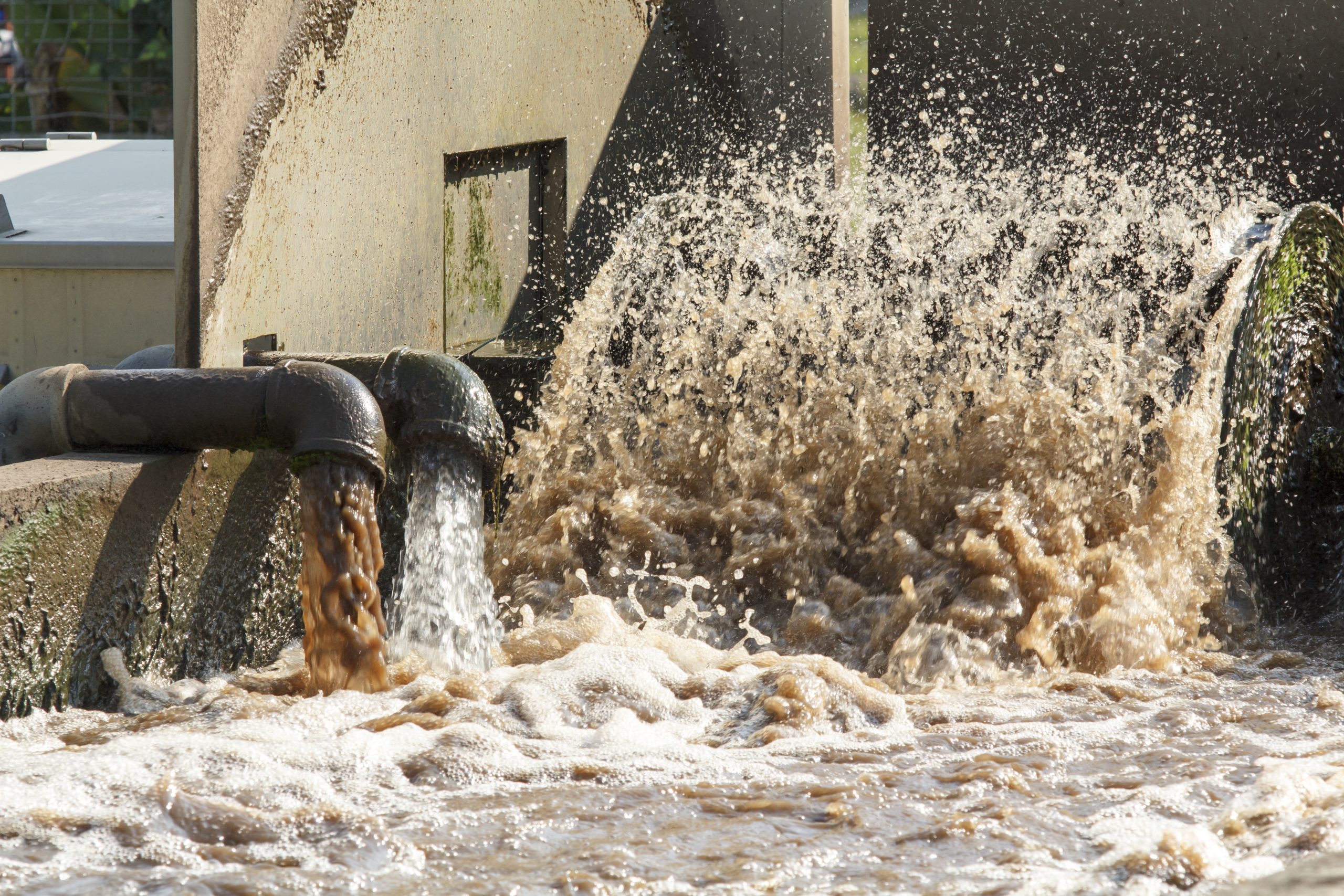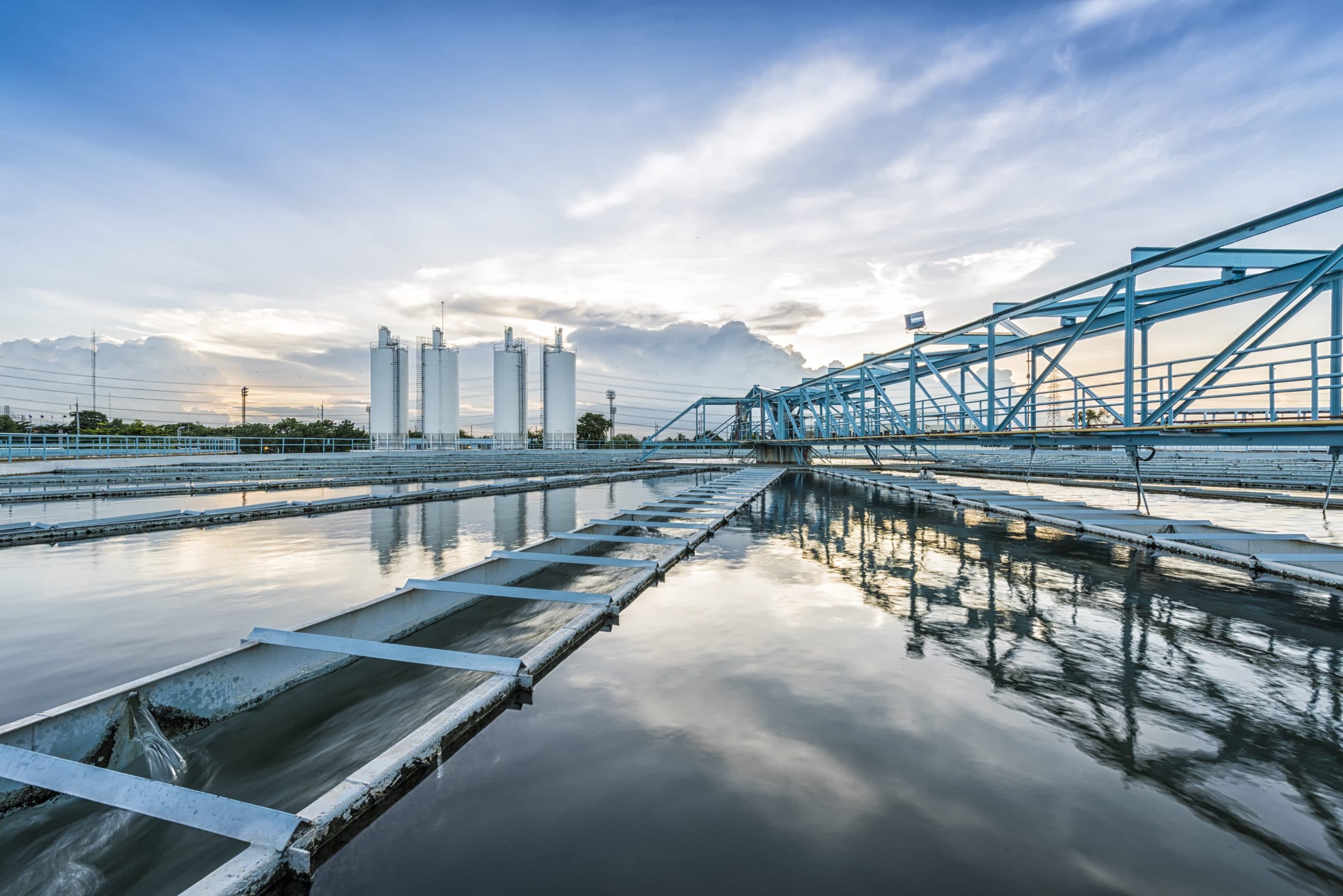Industrial Waste Water Treatment-- Advanced Solutions for Cleanser Effluents
Wiki Article
The Function of Industrial Waste Water Treatment in Environmental Management
The reliable therapy of industrial wastewater is significantly acknowledged as a keystone of ecological security, serving to alleviate the harmful impacts of pollutants on aquatic ecological communities. As industries develop and increase, the need for robust wastewater management options becomes paramount to guarantee conformity with environmental regulations and advertise lasting practices.Significance of Drainage Therapy
The relevance of wastewater therapy can not be overemphasized, as it plays a critical function in safeguarding public wellness and the environment (Industrial Waste Water Treatment). Efficient wastewater treatment systems are necessary for eliminating impurities from commercial discharge, thus protecting against dangerous materials from entering natural water bodies. This procedure reduces the risk of waterborne conditions, which can occur from untreated wastewater, and safeguards area health
In addition, treated wastewater can be safely reused in different applications, such as watering and commercial procedures, promoting lasting water monitoring practices. By recycling water, industries can considerably lower their freshwater consumption, adding to resource conservation.
In addition to health benefits, wastewater therapy is essential for maintaining water ecological communities. Toxins in untreated wastewater can lead to the destruction of water quality, harming marine life and interfering with environmental balances. By treating wastewater before discharge, markets aid preserve the honesty of local environments and promote biodiversity.
Additionally, governing compliance is an essential element of wastewater monitoring. Following recognized ecological criteria not just prevents lawful consequences but also improves a business's reputation as a liable business person. Fundamentally, efficient wastewater therapy is crucial for safeguarding public health and wellness, shielding the environment, and promoting lasting industrial techniques.

Sources of Hazardous Waste Water
Industrial wastewater stems from a range of resources, each adding to the complexity of therapy processes. Mainly, these resources include making centers, refineries, and handling plants, which generate effluents as a by-product of their procedures. Industries such as fabrics, pharmaceuticals, food and beverage, and petrochemicals produce significant volumes of wastewater, usually stuffed with pollutants including heavy steels, natural substances, and nutrients.Along with manufacturing, farming tasks add to industrial wastewater through drainage and effluent from animals operations and plant handling. The meat and milk sectors, particularly, are understood for releasing high levels of biochemical oxygen demand (BODY) and pathogens.
In addition, mining and mineral handling tasks create wastewater consisting of put on hold solids and harmful chemicals. Power generation plants, especially those making use of nonrenewable fuel sources, also add wastewater with cooling systems and chemical cleansing procedures.
Each of these resources provides distinct obstacles pertaining to the make-up and volume of wastewater created, requiring customized treatment services to minimize their ecological influence. Understanding the diverse beginnings of industrial wastewater is vital for developing reliable management techniques intended at safeguarding water resources and promoting sustainable commercial practices.
Therapy Procedures and Technologies
Reliable treatment processes and modern technologies are vital for taking care of industrial wastewater and alleviating its environmental effect. Numerous methods are utilized to eliminate pollutants, adapt to various wastewater attributes, and abide by regulatory criteria.Physical therapy procedures, such as sedimentation and filtering, facilitate the removal of put on hold solids. These approaches are typically used as initial steps to reduce the tons on succeeding treatment phases. Chemical treatment, including coagulation, neutralization, and flocculation, addresses dissolved pollutants by changing their chemical properties, making them less complicated to separate from water.
Biological treatment modern technologies, such as turned on sludge systems and biofilters, use microorganisms to degrade raw material and nutrients. These techniques are especially efficient for biodegradable waste streams, advertising the all-natural disintegration process. Advanced treatment innovations, such as membrane layer filtering and progressed oxidation processes, deal enhanced elimination effectiveness for challenging contaminants, consisting of hefty steels and find out here now consistent organic compounds.
Each of these treatment processes can be configured in different combinations to create tailored remedies that fulfill details commercial demands. The choice of technology depends upon variables such as the type of wastewater, preferred therapy end results, and financial factors to consider, making sure that markets can run sustainably while reducing their eco-friendly footprint.
Ecological Advantages
Applying durable wastewater therapy refines not just guarantees conformity with regulatory standards but additionally yields substantial ecological benefits. Effective therapy of commercial wastewater minimizes the discharge of damaging contaminants right into all-natural water bodies, thus securing water ecosystems. By eliminating toxic materials, hefty steels, and microorganisms, these procedures assist maintain biodiversity and advertise much healthier ecological communities.Additionally, treated wastewater can be repurposed for various applications, including irrigation and industrial processes, minimizing the need for freshwater resources. This reuse not just saves water yet additionally decreases the anxiety on neighborhood water materials, which is especially critical in water-scarce areas.
In addition, effective wastewater treatment mitigates the risk of soil and groundwater contamination, making certain the integrity of local environments. Industrial Waste Water Treatment. By preventing the infiltration of unsafe materials, sectors add to the total health and wellness of bordering environments and communities, boosting public trust fund and fostering lasting industrial methods
Regulatory Framework and Compliance
An extensive governing structure regulates the therapy of commercial wastewater, making certain that markets adhere to strict compliance criteria. Numerous nationwide and local laws, such as the Tidy Water Act in the United States, established forth limits on the discharge of toxins into water bodies. These laws are designed to shield water environments and public health and wellness by mandating that industries execute appropriate therapy modern technologies.Compliance with these policies commonly entails getting authorizations, carrying out normal surveillance, and reporting discharge degrees to regulatory authorities. Failure to comply can lead to substantial penalties, consisting of penalties and functional limitations, thus incentivizing industries to take on finest practices in wastewater administration.
In enhancement to governmental regulations, many industries additionally stick to voluntary requirements and certifications, such as ISO 14001, which advertise sustainable environmental monitoring methods. Additionally, stakeholders are progressively advocating for improved transparency and responsibility in wastewater management, pushing for more stringent enforcement and more extensive coverage demands.
Ultimately, a durable governing framework this contact form not just serves to alleviate environmental threats however likewise cultivates a society of sustainability within the commercial industry, urging continuous enhancement in wastewater therapy processes.
Conclusion

The efficient treatment of industrial wastewater is increasingly identified as a foundation of environmental protection, offering to minimize the detrimental impacts of toxins on aquatic ecological communities. Effective wastewater treatment systems useful source are important for removing pollutants from industrial discharge, thereby preventing dangerous materials from going into all-natural water bodies.Industrial wastewater originates from a range of resources, each adding to the intricacy of therapy processes. Effective treatment of commercial wastewater minimizes the discharge of harmful toxins right into natural water bodies, consequently shielding marine environments.In verdict, industrial wastewater therapy is important for protecting environmental honesty and advertising sustainable water management.
Report this wiki page